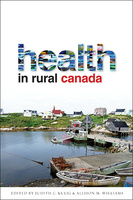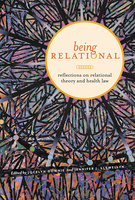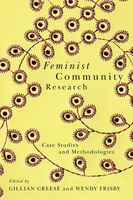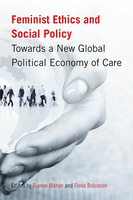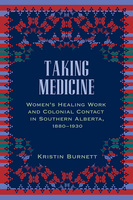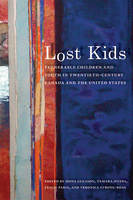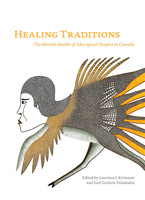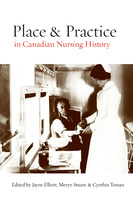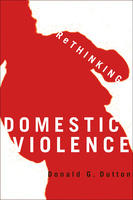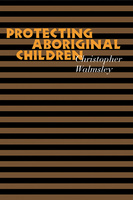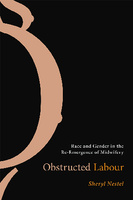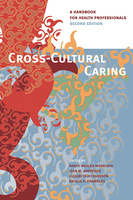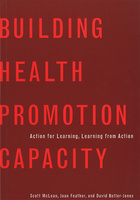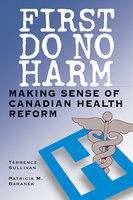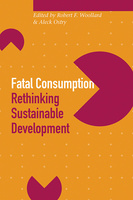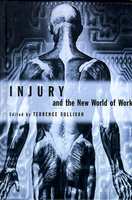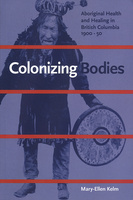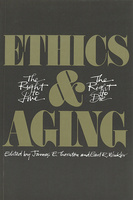Health in Rural Canada
This topical, comprehensive volume surveys the current state of rural health and health care across Canada to enhance our knowledge of health differences and similarities across Canadian geographies.
Being Relational
Reflections on Relational Theory and Health Law
This groundbreaking collection explores relational theory and how it can be brought to bear on practical areas of concern in health law and policy.
Feminist Community Research
Case Studies and Methodologies
Researchers from multiple disciplines discuss the potential and the challenges of feminist community research.
Feminist Ethics and Social Policy
Towards a New Global Political Economy of Care
This volume addresses the theoretical and practical relationships among the feminization of migrant labour, the ethics of care, and social policy in the new global economy.
Health Inequities in Canada
Intersectional Frameworks and Practices
Highlights the potential of intersectionality as a research paradigm for the health sciences.
Taking Medicine
Women's Healing Work and Colonial Contact in Southern Alberta, 1880-1930
Taking Medicine challenges traditional understandings of colonial medicine by bringing to light the healing work of Aboriginal and settler women in southern Alberta.
Healing Traditions
The Mental Health of Aboriginal Peoples in Canada
Criminal Artefacts
Governing Drugs and Users
By looking curiously on the criminal addict as an artefact of criminal justice, this book asks us to question why the criminalized drug user has become such a focus of contemporary criminal justice practices.
The Caregiver
A Life with Alzheimer's
No Place to Go
Local Histories of the Battered Women’s Shelter Movement
The first history of the battered women’s shelter movement in Canada, this book traces the development of transition houses and services for abused women and the campaign that made wife battering a political issue.
Nutrition Policy in Canada, 1870-1939
Examines the beginnings and early evolution of nutrition policy developments in Canada from the late nineteenth century to the beginning of the Second World War.
Rethinking Domestic Violence
Dutton’s rethinking of the fundamentals of intimate partner violence is essential reading for psychologists, policy makers, and those dealing with the sociology of social science, the relationship of psychology to law, and explanations of adverse behaviour.
Protecting Aboriginal Children
This is the first book to document emerging practice in Aboriginal communities and describe child protection practice simultaneously from the point of view of the Aboriginal and non-Aboriginal social worker.
Cross-Cultural Caring, 2nd ed.
A Handbook for Health Professionals
This new edition provides up-to-date statistics and fresh analysis of changing trends in immigration, describes ethno-cultural community, discussing such issues as childbirth, mental illness, dental care, hospitalization, and death, as well as home country culture, common reasons for emigrating, and challenges in adjusting to a new culture.
Building Health Promotion Capacity
Action for Learning, Learning from Action
Explores the professional practice of health promotion and, in particular, how individuals and organizations can become more effective in undertaking and supporting such practice.
First Do No Harm
Making Sense of Canadian Health Reform
Is there a crisis in Canadian health care? This book provides a concise introduction to the fundamentals of health care in Canada and examine various ideas for reforming the system sensibly.
Fatal Consumption
Rethinking Sustainable Development
Taking the slogan "think globally, act locally" to heart, the contributors to this book offer both an understanding of the present and hope for a sustainable future.
Injury and the New World of Work
Examines a broad range of research solutions and policy options for dealing with the critical state of workers' compensation.
Colonizing Bodies
Aboriginal Health and Healing in British Columbia, 1900-50
This detailed but highly readable ethnohistory shows how a pluralistic medical system evolved among Canada’s most populous Aboriginal population.
Ethics and Aging
The Right to Live, the Right to Die
This book reflects the complexity of ethical questions, but develops them in relation to a single general theme: that of the involvement of the elderly in the design of social policy and the research which affects them.

